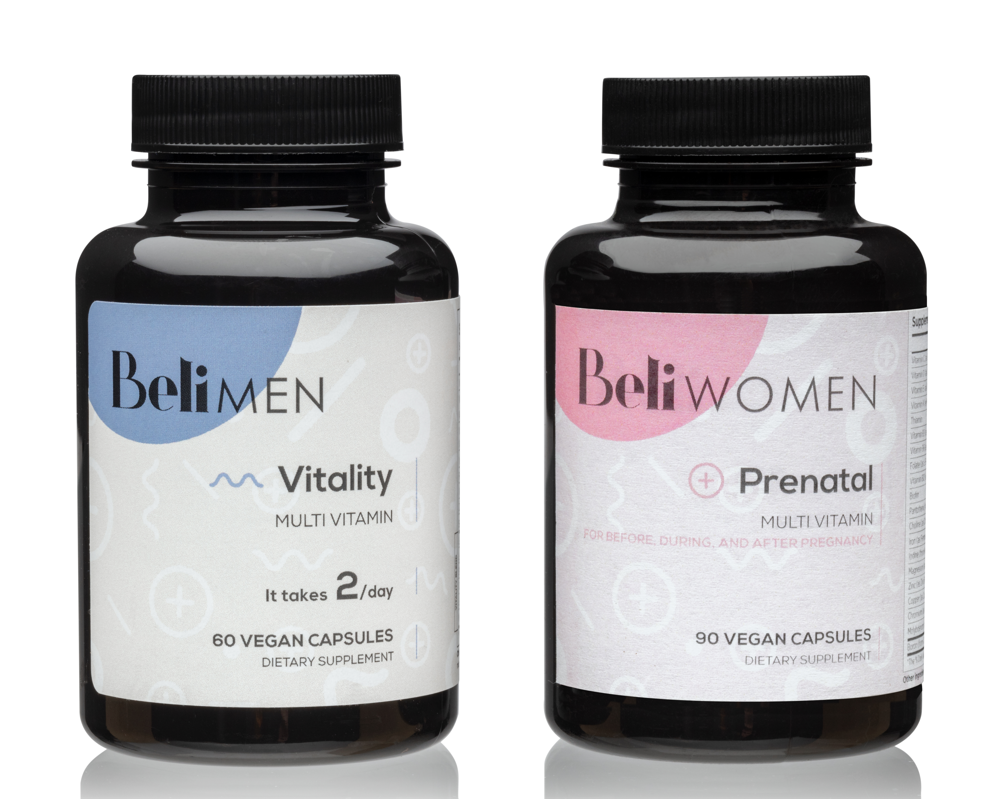For many, starting a family begins with understanding women’s health. But here’s the truth: male fertility contributes to 50% of all fertility struggles, yet it’s often overlooked. What’s even more surprising? Men’s fertility health is not just about sperm—it’s also deeply tied to testosterone levels, which influence sperm production and overall reproductive health.
Addressing male fertility starts with two essential steps: testing testosterone levels and actively supporting sperm health. These insights provide the foundation for improving conception chances and ensuring healthy pregnancies.
If you’re ready to take control of your reproductive health, this guide will walk you through everything you need to know about sperm health, the role of testosterone, and how targeted solutions like Beli for Men can make a difference.
Takeaways
- Sperm health matters for conception, pregnancy success, and baby health.
- Testing testosterone is a critical step to identify hidden fertility issues.
- Beli for Men offers targeted support for male fertility, outperforming multivitamins.
- Don’t wait—take control of your fertility journey today.
The Sperm Health Crisis: Stats Every Man Should Know
- Sperm Count Declines: Over the past 50 years, global sperm counts have dropped by more than 50%, with declines accelerating in recent decades.
- Miscarriage Risks: Poor sperm quality contributes to up to 26% of early pregnancy losses, underscoring its critical role in healthy pregnancies.
- Time to Pregnancy: Couples with suboptimal sperm health often take twice as long to conceive.
- Testosterone Levels and Sperm Production: Low testosterone can directly impair sperm production. Normal testosterone levels range from 300–1,000 ng/dL, but studies show even men within this range can experience fertility issues if their levels are on the lower end.
- Sperm Testing Stats: About 40% of men struggling with infertility have never tested their sperm or testosterone, delaying essential interventions.
The Connection Between Testosterone and Sperm Health
Testosterone isn’t just a marker of masculinity—it’s a hormone that drives spermatogenesis, the process of creating healthy sperm. When testosterone levels are low, the body struggles to produce adequate sperm, leading to lower counts, poor motility, and reduced chances of conception.
Here’s why testing testosterone is a game-changer for male fertility:
- Early Detection of Fertility Issues: Testing provides a baseline understanding of hormone health and can identify hidden problems affecting sperm quality.
- Tracking Hormonal Balance: Testosterone testing helps detect imbalances caused by lifestyle factors, stress, or medical conditions like hypogonadism.
- Guiding Targeted Support: Armed with testing data, you can take steps to optimize sperm health through diet, lifestyle changes, and supplementation.
Why Multivitamins Aren’t Enough for Male Fertility
You’ve probably heard that taking a daily multivitamin is good for overall health—but when it comes to male fertility, it falls short. That’s because standard multivitamins are not designed to support sperm parameters or hormonal health.
Here’s where Beli for Men stands out:
- Testosterone Support: Beli includes key nutrients like zinc, vitamin D, and magnesium, which are proven to maintain healthy testosterone levels.
- Sperm-Specific Nutrients: Ingredients like CoQ10, L-carnitine, and selenium target sperm count, motility, and DNA quality—nutritional gaps most multivitamins ignore.
- Antioxidant Protection: With powerful antioxidants, Beli fights oxidative stress, a leading cause of sperm DNA damage.
- Optimal Dosages: Beli is formulated based on the latest fertility research, ensuring you get therapeutic levels of essential nutrients—not just a sprinkling.
Testing + Supporting Sperm Health
Here’s how to take control of your reproductive health in three steps:
- Test Your Testosterone and Sperm Parameters: Understanding your baseline is critical. Look for at-home fertility test kits (like the one offered by Beli) to measure testosterone and key sperm health indicators, including count, motility, and morphology.
- Optimize Your Lifestyle: Improve your diet, exercise regularly, and reduce exposure to environmental toxins that harm sperm.
- Take a Targeted Supplement: Supplementing with Beli for Men bridges nutritional gaps, supports testosterone, and enhances overall sperm health.
Remember, it takes approximately 70-90 days for sperm to regenerate. Consistency is key to seeing improvements in fertility.
Invest in Your Fertility Journey Today
Male fertility isn’t a static trait—it’s something you can actively improve. By understanding the crucial roles of sperm health and testosterone, you’re already taking the first step toward empowered fertility care. Testing your sperm and testosterone provides valuable insights, while targeted solutions like Beli for Men give your body the tools it needs to thrive.
Your fertility journey deserves the best support. Don’t leave your future to chance. Start with testing, prioritize sperm health, and add Beli for Men to your routine. It’s not just about becoming a dad—it’s about ensuring the healthiest possible start for your family.





